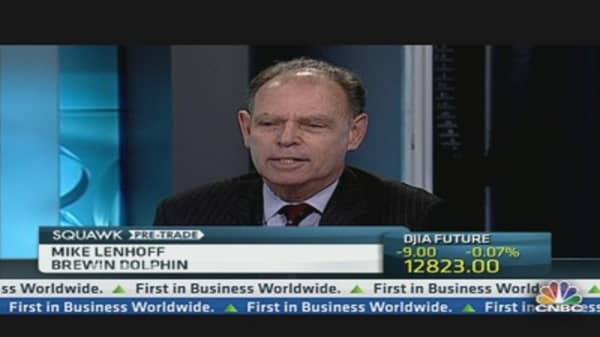Fears of the euro zone providing a “Lehman moment” – an event which puts the final spark to the tinderbox of a global economic crisis – have been growing for months.
First, the second Greek election was flagged as a possible catalyst for chaos. Then it was the perceived lack of decision from the leaders of the euro zone’s four biggest economies: Germany; France; Italy and Spain.
Gary Burnison, chief executive of recruitment company Korn/Ferry International, told CNBC that companies are still nervous about hiring across the continent.
"They're all waiting for a Lehman Brothers moment. It’s across countries, industries, everything. Uncertainty is certainty and we’ve got to break through that,” he told “Worldwide Exchange.”
Burnison pointed out that the “Lehman moment” could come from outside the euro zone, such as a sharper slowdown in China or the looming U.S. fiscal cliff.
This uncertainty is reflected in the divergence of opinions on whether the euro zone will provide a huge shock to global markets again soon.
“I don’t expect anything that dramatic. There’ll be an unpleasant grind-through as Italy and Spain deal with their issues,” Dan Morris, market strategist at JP Morgan, told CNBC’s “Squawk Box Europe.”
He pointed to a “pretty wide valuation gap in Europe” and said there were “more opportunities than in the past” to make money on equities, particularly German equities.
The outcome of the last euro zone summit, where leaders seemed to establish a clearer path out of the crisis, seems to be the main grounds for optimism.
“We’re on our way to the fix,” Mike Lenhoff, chief strategist at Brewin Dolphin, told CNBC.
“It’s really a question of can the momentum that was released be sustained? The really good thing is that they (the euro zone leaders) now have a timeline.”
Yet there are still plenty of troubles remaining, and many of the measures suggested will take a long time to enact.
“The big issue is the lack of growth in the euro zone and the drive on austerity is really counter-productive. They need to relax the deficit targets just for a short period of time,” Lenhoff argued.
Yet there are still plenty who predict a “Lehman moment” in Europe – usually predicted to be a messy collapse of the single currency - and fear the consequences. Lord Wolfson, chief executive of Next and an advisor to the U.K. government, famously said that a messy break-up of the single currency would make Lehman Brothers’ collapse look like a “minor blip.”
“A dramatic further intensification of the crisis – a Lehman-like meltdown – could cut short the already fragile recovery (in the US),” Jim O’Sullivan, chief U.S. economist at High Frequency Economics, wrote in a research note.





